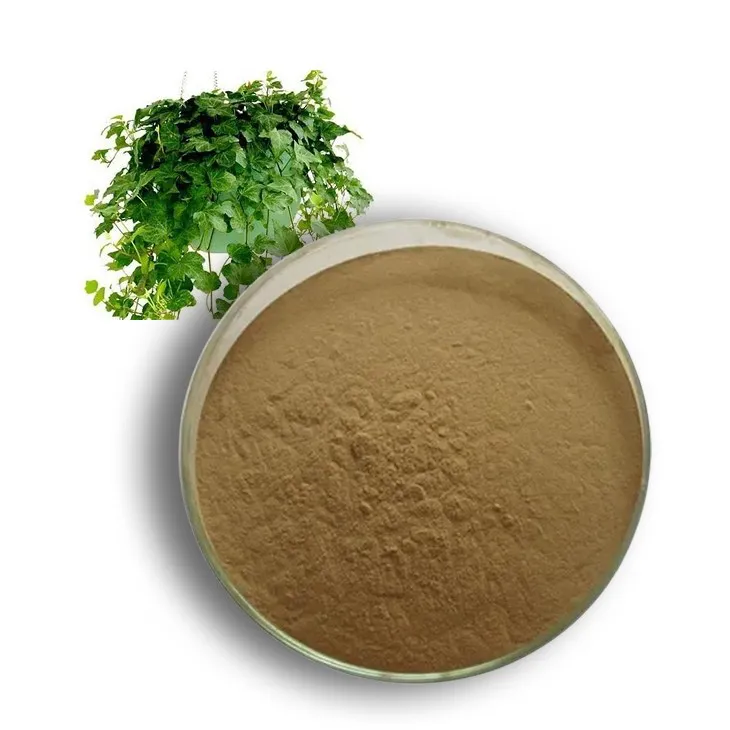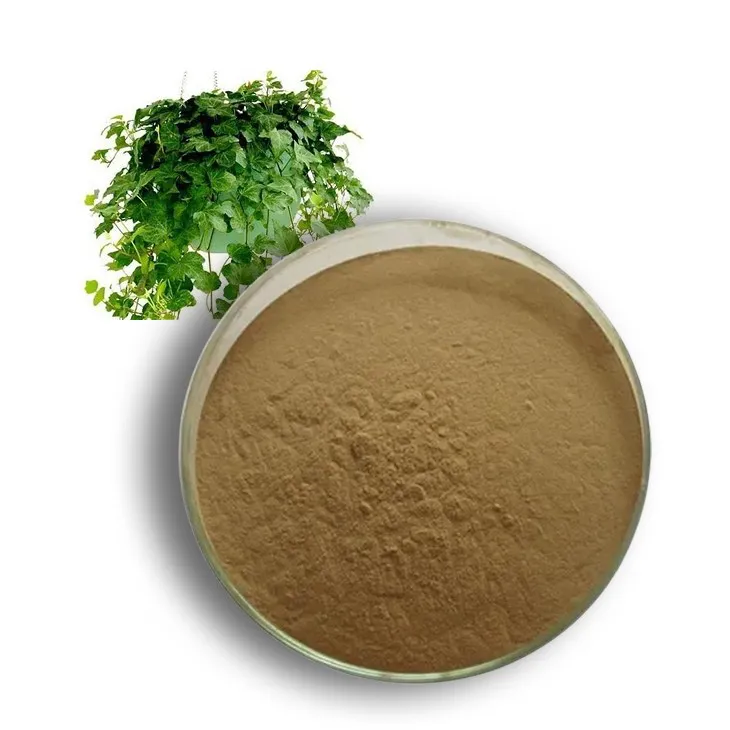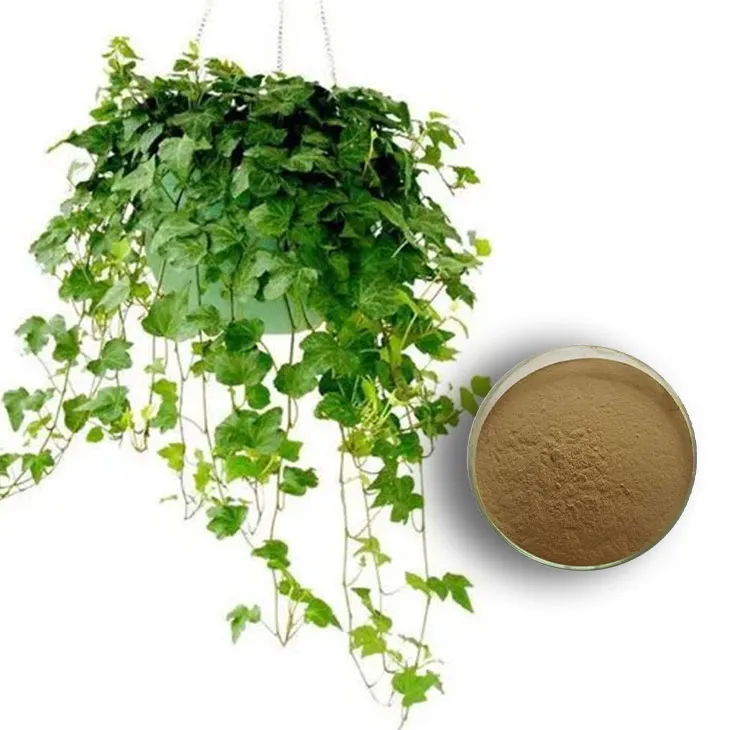- 0086-571-85302990
- sales@greenskybio.com
Have you heard of ivy extract? 5 Unexpected Health Benefits.
2024-11-13

Introduction
Ivy Extract is a natural substance that has been used in traditional medicine for centuries. However, in modern times, it is not as widely known as some other herbal extracts. This is quite surprising considering the numerous health benefits it offers. In this article, we will explore five unexpected health benefits of Ivy Extract, ranging from its anti - inflammatory properties to its potential role in skin health improvement.

1. Anti - Inflammatory Effects
What makes Ivy Extract anti - inflammatory? Ivy extract contains compounds such as saponins, which have been shown to possess anti - inflammatory properties. These saponins work by modulating the body's immune response, specifically by reducing the production of inflammatory cytokines. Cytokines are small proteins that are released by cells in response to infection or injury, and an overproduction of certain cytokines can lead to chronic inflammation.
How does this benefit the body? Chronic inflammation is associated with a wide range of health problems, including heart disease, arthritis, and even some cancers. By reducing inflammation, ivy extract can potentially help in the prevention and management of these conditions. For example, in arthritis patients, the anti - inflammatory effect of ivy extract may help to relieve joint pain and stiffness. It can also reduce swelling in inflamed tissues, improving overall mobility and quality of life.

2. Respiratory Health
Benefits for the respiratory system Ivy extract has long been used to support respiratory health. It has expectorant properties, which means it helps to thin and loosen mucus in the lungs and airways. This makes it easier for the body to expel mucus, relieving congestion and improving breathing. For those suffering from bronchitis, coughs, or asthma, ivy extract can be a natural and effective remedy.
How it works on a cellular level The active compounds in ivy extract interact with the cells lining the respiratory tract. They stimulate the cilia, which are tiny hair - like structures on these cells. The cilia are responsible for moving mucus out of the lungs. By enhancing the function of the cilia, ivy extract ensures that mucus is efficiently removed from the respiratory system, reducing the risk of infections and improving overall respiratory function.

3. Antioxidant Properties
The role of antioxidants Ivy extract is rich in antioxidants. Antioxidants are substances that can neutralize free radicals in the body. Free radicals are unstable molecules that are produced as a result of normal cellular metabolism, but they can also be generated by external factors such as pollution, smoking, and UV radiation. If left unchecked, free radicals can cause damage to cells, leading to premature aging, cancer, and other diseases.
How ivy extract combats free radicals The antioxidants in ivy extract, such as flavonoids and phenolic compounds, donate electrons to free radicals, thereby stabilizing them. This process prevents the free radicals from causing oxidative stress to cells. By protecting cells from oxidative damage, ivy extract can help to maintain healthy skin, improve cardiovascular health, and boost the immune system.
4. Skin Health Improvement
Benefits for the skin Ivy extract can have a positive impact on skin health. Its anti - inflammatory and antioxidant properties make it useful for treating various skin conditions. For example, it can be used to soothe inflamed skin, such as in cases of eczema or psoriasis. It can also help to reduce the signs of aging, such as wrinkles and fine lines, by protecting the skin from free radical damage.
Topical vs. internal use Ivy extract can be used both topically and internally for skin health. When applied topically, it can be added to creams or lotions to directly target skin problems. Internally, consuming ivy extract in the form of supplements or herbal teas can improve skin health from within by promoting overall health and reducing inflammation in the body.
5. Digestive Support
How it aids digestion Ivy extract can support the digestive system in several ways. It has been shown to have a mild laxative effect, which can help to regulate bowel movements. Additionally, it can also help to soothe the digestive tract, reducing inflammation in the gut. This can be beneficial for those suffering from digestive disorders such as irritable bowel syndrome (IBS).
Interaction with gut microbiota The gut microbiota plays a crucial role in overall health. Ivy extract may also interact with the gut microbiota in a positive way. It can promote the growth of beneficial bacteria in the gut while inhibiting the growth of harmful bacteria. This balanced gut microbiota is essential for proper digestion, nutrient absorption, and immune function.
Conclusion
In conclusion, ivy extract is a natural substance with a wide range of potential health benefits. Despite not being as well - known as some other herbal remedies, it offers unique properties that can contribute to anti - inflammatory effects, respiratory health, antioxidant protection, skin health improvement, and digestive support. However, it is important to note that more research is needed to fully understand the mechanisms of action and potential side effects of ivy extract. Before using ivy extract for medicinal purposes, it is advisable to consult a healthcare professional.
FAQ:
What is ivy extract?
Ivy extract is a substance obtained from the ivy plant. It contains various bioactive compounds that are believed to contribute to its potential health benefits.
What are the anti - inflammatory effects of ivy extract?
The anti - inflammatory effects of ivy extract may be due to its compounds that can modulate the body's immune response. It may help reduce inflammation in the body, which could be beneficial for conditions related to chronic inflammation, such as arthritis or certain respiratory disorders.
How can ivy extract potentially improve the skin?
Ivy extract might improve the skin in several ways. It could have antioxidant properties that protect the skin from free - radical damage. Additionally, it may help with skin hydration and potentially reduce skin irritation, contributing to a healthier - looking complexion.
Are there any side effects of using ivy extract?
While ivy extract can have potential health benefits, it may also cause side effects in some individuals. It can be irritating to the skin or mucous membranes in concentrated forms. Ingesting large amounts may also lead to digestive issues or allergic reactions in sensitive people.
How is ivy extract typically used?
Ivy extract can be used in various forms. It is sometimes included in topical creams or ointments for skin - related applications. It may also be available in supplement form for internal use, although this should be done under the guidance of a healthcare professional.
Related literature
- Ivy Extract: Chemical Composition and Potential Health Applications"
- "Anti - Inflammatory Properties of Ivy Extract: A Review"
- "The Role of Ivy Extract in Skin Health and Wellness"
- ▶ Hesperidin
- ▶ Citrus Bioflavonoids
- ▶ Plant Extract
- ▶ lycopene
- ▶ Diosmin
- ▶ Grape seed extract
- ▶ Sea buckthorn Juice Powder
- ▶ Fruit Juice Powder
- ▶ Hops Extract
- ▶ Artichoke Extract
- ▶ Mushroom extract
- ▶ Astaxanthin
- ▶ Green Tea Extract
- ▶ Curcumin
- ▶ Horse Chestnut Extract
- ▶ Other Product
- ▶ Boswellia Serrata Extract
- ▶ Resveratrol
- ▶ Marigold Extract
- ▶ Grape Leaf Extract
- ▶ New Product
- ▶ Aminolevulinic acid
- ▶ Cranberry Extract
- ▶ Red Yeast Rice
- ▶ Red Wine Extract
-
Cranberry Extract
2024-11-13
-
Mangosteen extract powder
2024-11-13
-
Buckthorn bark extract
2024-11-13
-
Baicalin
2024-11-13
-
Bilberry Extract
2024-11-13
-
Kelp Extract Powder
2024-11-13
-
Curcumin Extract
2024-11-13
-
Chasteberry Extract
2024-11-13
-
Aguaje Extract
2024-11-13
-
Beetroot Powder
2024-11-13





















